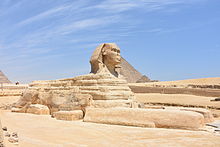Observations placeholder
Grieg - Peer Gynt Suite - Anitra's Dance
Identifier
025253
Type of Spiritual Experience
Background
Peer Gynt is a five-act play in verse by the Norwegian dramatist Henrik Ibsen. It was first performed in Christiania (now Oslo) on 24 February 1876, with original music composed by Edvard Grieg that includes some of today's most recognized classical pieces, In the Hall of the Mountain King and Morning Mood. It was published in German translation in 1881, in English in 1892, and in French in 1896.
Henrik Ibsen
Peer Gynt is a five-act play in verse by the Norwegian dramatist Henrik Ibsen. It is written in Danish—the common written language of Denmark and Norway in Ibsen's lifetime. The play is loosely based on Per Gynt, a Norwegian fairy tale.
Peer Gynt is an allegory of the spiritual path and many of the places that Peer Gynt visits are well known spiritual symbols – oceans and seas, mountains, forests, deserts, caves etc. The theme indicates that man must progress along the stages of the spiritual path as dictated by his destiny. There is no avoiding the stages and Peer Gynt chronicles the journey of its titular character from the Norwegian mountains to the North African desert.
There is another important spiritual theme in Peer Gynt – what distinguishes spiritual man from materialistic beast. And the answer is the ego. A materialistic beast [a troll] is ego led, a spiritual man has crushed his ego and is seeking to ‘know himself’. The troll king for example asks: What is the difference between troll and man?
The answer given by the Old Man of the Mountain is:
"Out there, where sky shines, humans say: 'To thyself be true.' In here, trolls say: 'Be true to yourself and to hell with the world.'"
In the play Peer Gynt takes no heed of the warning and lives an entirely selfish life, hurting a great many people on the way.
Grieg’s music
Ibsen asked Edvard Grieg to compose the incidental music for the play in 1874. Grieg composed a score that plays approximately ninety minutes. The play and the music were first performed two years later.
Grieg extracted two suites of four pieces each from the incidental music (Opus 46 and Opus 55), which became very popular as concert music. One of the sung parts of the incidental music ended up in these suites (the famous In the Hall of the Mountain King) in the 1st suite with the vocal parts omitted. Originally, the second suite had a fifth number, The Dance of the Mountain King's Daughter, but Grieg withdrew it.
Grieg himself declared that it was easier to make music "out of his own head" than strictly following suggestions made by Ibsen.
A description of the experience
Grieg - Anitra's Dance - Peer Gynt Suite
Wikipedia - Act IV
Peer is away for many years, taking part in various occupations and playing various roles including that of a businessman engaged in enterprises on the coast of Morocco. Here, he explains his view of life, and we learn that he is a businessman taking part in unethical transactions, including sending heathen images to China and trading slaves. In his defense, he points out that he has also sent missionaries to China, and he treated his slaves well.
His companions rob him, after he decides to support the Turks in suppressing a Greek revolt, and leave him alone on the shore. He then finds some stolen Bedouin gear, and, in these clothes, he is hailed as a prophet by a local tribe. He tries to seduce Anitra, the chieftain's daughter, but she steals his money and rings, gets away, and leaves him.
Then he decides to become a historian and travels to Egypt. He wanders through the desert, passing the Colossi of Memnon and the Sphinx.
As he addresses the Sphinx, believing it to be the Bøyg, he encounters the keeper of the local madhouse, himself insane, who regards Peer as the bringer of supreme wisdom. Peer comes to the madhouse and understands that all of the patients live in their own worlds, being themselves to such a degree that no one cares for anyone else.


